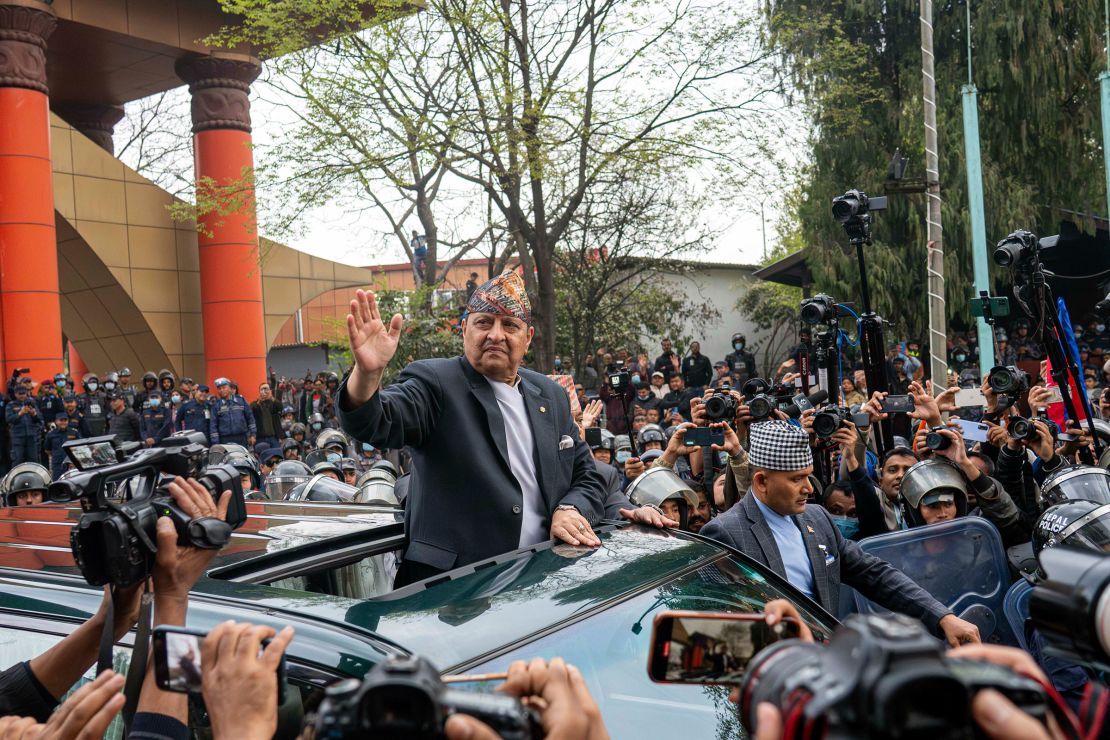Kathmandu, Nepal
AP
—
Thousands of supporters greeted Nepal’s former king in capital Kathmandu on Sunday and demanded his abolished monarchy be reinstated and Hinduism brought back as a state religion.
An estimated 10,000 supporters of Gyanendra Shah blocked the main entrance to Kathmandu’s Tribhuvan International Airport as he arrived from a tour of western Nepal.
“Vacate the royal palace for the king. Come back king, save the country. Long live our beloved king. We want monarchy,” the crowds chanted. Passengers were forced to walk to and from the airport.
Hundreds of riot police blocked the protesters from entering the airport and there was no violence.
Massive street protests in 2006 forced Gyanendra to give up his authoritarian rule, and two years later the parliament voted to abolish the monarchy as Gyanendra left the Royal Palace to live the life of a commoner.

But many Nepalis have grown frustrated with the republic, saying it has failed to bring about political stability and blaming it for a struggling economy and widespread corruption. Nepal has had 13 governments since the monarchy was abolished in 2008.
Rally participants said they were hoping for a change in the political system to stop the country from further deteriorating.
“We are here to give the king our full support and to rally behind him all the way to reinstating him in the royal throne,” said Thir Bahadur Bhandari, 72.
Among the thousands was 50-year-old carpenter Kulraj Shrestha, who had taken part in the 2006 protests against the king but has changed his mind and now supports the monarchy.
“The worst thing that is happening to the country is massive corruption and all politicians in power are not doing anything for the country,” Shrestha said. “I was in the protests that took away monarchy hoping it would help the country, but I was mistaken and the nation has further plunged so I have changed my mind.”
Gyanendra has not commented on the calls for the return of monarchy. Despite growing support for the former king, Gyanendra has slim chances of immediately returning to power.
He became the king in 2002, after his brother and family were massacred in the palace. He ruled as the constitutional head of state without executive or political powers until 2005, when he seized absolute power. He disbanded the government and parliament, jailed politicians and journalists and cut off communications, declaring a state of emergency and using the army to rule the country.

